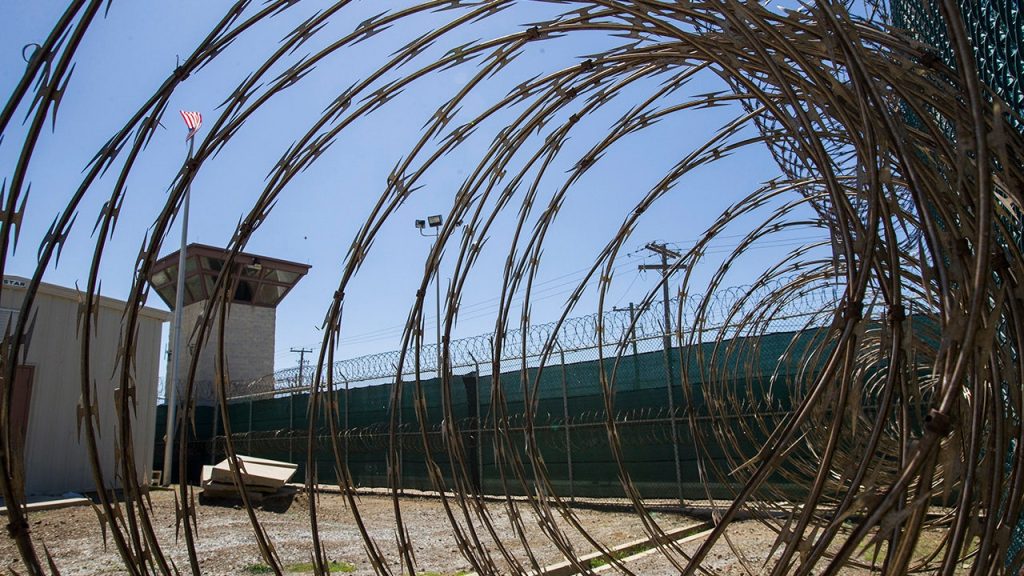The recent transfer of three detainees from the Guantanamo Bay detention facility marks a significant step in the ongoing effort to reduce the prison’s population and eventually close it. Two of the transferred individuals, Mohammed Farik bin Amin and Mohammed Nazir bin Lep, are Malaysian nationals who pleaded guilty to multiple offenses, including murder and destruction of property, related to their involvement in terrorist activities linked to Jemaah Islamiya, an al Qaeda-affiliated group. Their guilty pleas were part of a pretrial agreement that included their cooperation with the U.S. government, providing crucial testimony against Encep Nurjaman, the alleged mastermind behind the 2002 Bali nightclub bombings and the 2003 J.W. Marriott Hotel bombing in Jakarta. The third detainee, Mohammed Abdul Malik Bajabu, a Kenyan national, was repatriated to his home country after 17 years of detention without charge. His release was based on the assessment that his continued detention was no longer necessary to protect U.S. national security.
The cases of Farik bin Amin and Nazir bin Lep provide insight into the complex legal proceedings and negotiations surrounding the Guantanamo detainees. Their cooperation with U.S. authorities was instrumental in securing their relatively short sentences of approximately five years, a considerable reduction compared to the potential penalties for their crimes. The agreement stipulated that they would provide deposition testimony against Nurjaman, a key figure in Jemaah Islamiya, whose trial is ongoing at Guantanamo. This cooperation underscores the U.S. government’s efforts to gather evidence and prosecute those responsible for major terrorist attacks, while also offering some form of leniency to those willing to assist in the pursuit of justice. The timing of their transfer, following the approval of their sentences by the Convening Authority and the recommendation for repatriation, indicates a deliberate and structured process for managing the detainee population.
The repatriation of Bajabu highlights the challenges and ambiguities surrounding the detention of individuals at Guantanamo. Held without charge for 17 years, his case exemplifies the prolonged detentions that have drawn international criticism and raised questions about due process and human rights. The Pentagon’s decision to release him, based on the assessment that he no longer posed a significant threat, suggests a shift in the perceived security risks associated with specific detainees. This shift could be attributed to a variety of factors, including the diminishing operational capacity of terrorist groups, the reassessment of intelligence information, and evolving legal interpretations of detention authority. Bajabu’s repatriation signifies the ongoing review process of individual detainee cases and the efforts to address the legal and ethical complexities of long-term detention without charge.
The transfers of these three detainees leave 27 individuals remaining at Guantanamo Bay. Of these, 15 are eligible for transfer, meaning they have been cleared for release but await repatriation or resettlement in a third country. Three detainees are eligible for review by a Periodic Review Board, a process that assesses whether their continued detention is necessary based on current security assessments. Seven individuals are currently involved in military commission proceedings, facing charges related to terrorist activities. Finally, two detainees have been convicted and are serving their sentences. These figures provide a snapshot of the current state of the detainee population and the various legal processes in motion. The ongoing military commissions, periodic review board assessments, and transfer negotiations demonstrate the complexities involved in resolving the legal status of the remaining detainees.
The effort to close the Guantanamo Bay detention facility remains a complex and protracted undertaking. The diverse legal status of the remaining detainees presents unique challenges. For those eligible for transfer, logistical and political obstacles often hinder the process of repatriation or resettlement. Negotiations with other countries to accept detainees can be complex, requiring diplomatic efforts and assurances regarding security and reintegration. For those involved in military commissions, the legal proceedings themselves can be lengthy and contested, involving complex evidentiary issues and navigating the unique legal framework governing military tribunals. Periodic review boards provide an avenue for reassessing the ongoing need for detention, but these reviews can also be time-consuming and involve detailed security assessments.
The recent transfers signify a renewed focus on reducing the detainee population and ultimately closing the Guantanamo facility. The ongoing legal proceedings, periodic review board assessments, and transfer negotiations underscore the complex and often arduous process involved in responsibly addressing the individual cases of the remaining detainees. While the ultimate closure of Guantanamo remains a stated policy objective, the path towards achieving this goal remains complex and fraught with legal, logistical, and political challenges. The future of the facility and the remaining detainees will continue to be a subject of debate and scrutiny, both domestically and internationally, as the U.S. grapples with the legacy of this controversial detention center.


